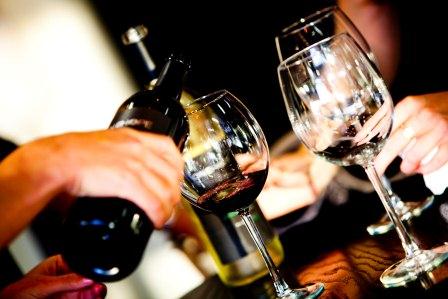After a long year and a lot of anticipation, getting the COVID-19 vaccine can be cause for celebration, which for some might mean pouring a drink and toasting to their new immunity. But can alcohol interfere with your immune response?
The short answer is that it depends on how much you drink.
There is no evidence that having a drink or two can render any of the current COVID vaccines less effective. Some studies have even found that over the longer term, small or moderate amounts of alcohol might actually benefit the immune system by reducing inflammation.
Heavy alcohol consumption, on the other hand, particularly over the long term, can suppress the immune system and potentially interfere with your vaccine response, experts say. Since it can take weeks after a COVID shot for the body to generate protective levels of antibodies against the novel coronavirus, anything that interferes with the immune response would be cause for concern.
“If you are truly a moderate drinker, then there’s no risk of having a drink around the time of your vaccine,” said Ilhem Messaoudi, director of the Center for Virus Research at the University of California, Irvine, who has conducted research on the effects of alcohol on the immune response. “But be very cognizant of what moderate drinking really means. It’s dangerous to drink large amounts of alcohol because the effects on all biological systems, including the immune system, are pretty severe and they occur pretty quickly after you get out of that moderate zone.”
Moderate drinking is generally defined as no more than two drinks a day for men and a maximum of one drink a day for women, whereas heavy drinking is defined as four or more drinks on any day for men and three or more drinks for women. Keep in mind that one “standard” drink is considered five ounces of wine, 1.5 ounces of distilled spirits, or 12 ounces of beer.
Some of the first concerns about alcohol and COVID vaccination began circulating after a Russian health official who warned in December that people should avoid alcohol for two weeks before getting vaccinated and then abstain for another 42 days afterward. According to a Reuters report, the official claimed that alcohol could hamper the body’s ability to develop immunity against the novel coronavirus. Her warning sparked a fierce backlash in Russia, which has one of the world’s highest drinking rates.
In the United States, some experts say they have heard similar concerns about whether it is safe to drink around the time of vaccination. “We’ve been getting a lot of questions from our patients about this,” said Dr. Angela Hewlett, an associate professor of infectious diseases who directs the COVID infectious diseases team at the University of Nebraska Medical Center. “Understandably, people who are receiving these vaccines want to make sure they’re doing all the right things to maximize their immune response.”
Clinical trials of the COVID vaccines that are currently approved for use by the Food and Drug Administration did not specifically look at whether alcohol had any impact on the effectiveness of the vaccines, Hewlett said. It’s possible that there will be more information on that in the future. But for now, most of what is known comes from previous research, including studies that examined how alcohol affects the immune system in humans and whether it hinders the immune response in animals that received other vaccines.
One thing that is clear from studies is that heavy alcohol consumption impairs the immune response and increases your susceptibility to bacterial and viral infections. It prevents immune cells from traveling to sites of infection and carrying out their duties, like destroying viruses, bacteria and infected cells; makes it easier for pathogens to invade your cells, and causes a host of other problems.
In contrast, moderate drinking does not seem to have this effect. In one study, scientists exposed 391 people to five different respiratory viruses and found that moderate drinkers were less likely to develop colds, but not if they were smokers.
CLICK HERE FOR FULL ARTICLE ON YAHOO NEWS


